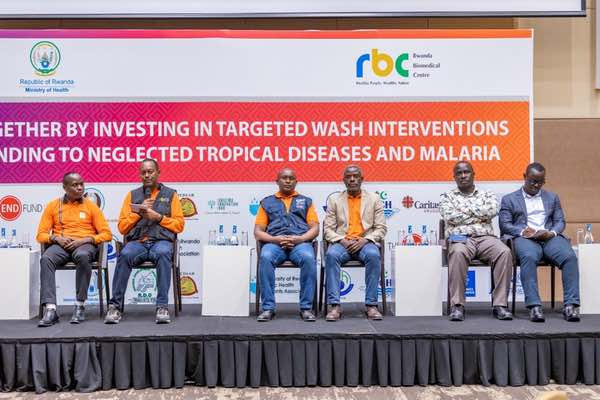
As Rwanda joined the rest of the world to mark World Neglected Tropical Diseases Day, public health experts called for a concerted effort to tackle the 20 diseases that affect 1.7 billion people worldwide.
Eight of the 20 diseases classified as neglected tropical diseases (NTDs) by the World Health Organization (WHO) affect thousands of people in Rwanda every year.
The most common NTDs in Rwanda are: intestinal worms (affecting 41 per cent of Rwandans, with a prevalence of 48 per cent in adults), bilharzia/schistosomiasis (1,000 cases), podoconiosis (about 6,000 cases annually), scabies (100,000 cases), taeniasis (3,000 cases), cysticercosis, rabies from dog bites (1,000 cases) and snakebite envenomation (1,500 cases).
“Neglected diseases are mostly found in sub-Saharan Africa. They are neglected because they do not receive the same attention as other diseases that affect the world,” Dr Aimable Mbituyumuremyi, Division Manager of Malaria and NTDs Division at Rwanda Biomedical Centre (RBC) told the press during the ceremony.
“These are diseases that have been a problem for more than 20 years, and yet the resources allocated to fighting them are still meagre.”
According to Dr Mbituyumuremyi, another reason is that even people affected by NTDs tend to ignore their effects. This makes medical treatment more difficult.
Health workers are more likely to be trained in the treatment of other major diseases, such as malaria, HIV/AIDS and TB, as well as in research as most funders are interested in those disease areas.
” Health care providers or patients may focus only on other conditions, even minor ones, but do not pay attention to NTDs,” he said.
According to the WHO, the diseases can be eliminated if the efforts of the government, non-governmental organisations and the general population are combined.
“Concerted efforts are required to reduce the health burden of NTDs in Rwanda. There’s a need for a rigorous awareness campaign to make people aware of the use of clean water and the best practices in sanitation,” said Dr. Jules Mugabo, in charge of Malaria and NTDs at WHO Rwanda.
“The diseases can be prevented, reduced and even eliminated. Because they affect many people and contribute to poverty levels, they shouldn’t be called neglected.”
According to the Ministry of Health, “remarkable progress” has been made in fighting NTDs in Rwanda.”
The World Health Organization has confirmed that sleeping sickness was eliminated from Rwanda in 202; it was historically or potentially endemic but is no longer a public health problem for the Rwandan population.
Since 2008, more than 65 million treatments for worm infections and schistosomiasis have been administered to children aged 1 to 15 years through biannual deworming for worm infections and annual treatment for schistosomiasis.
Deworming, combined with progress in water, sanitation, hygiene, awareness and intestinal worm prevalence, decreased from 66 percent in 2008 to less than 20 percent in 2020 among surveyed school-aged children. (End)
